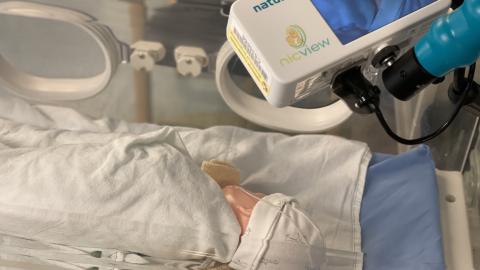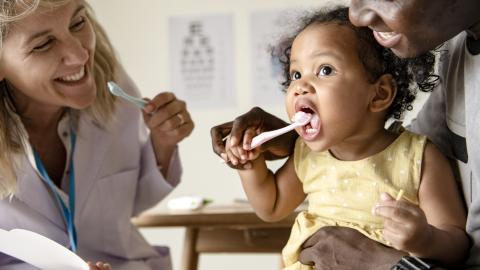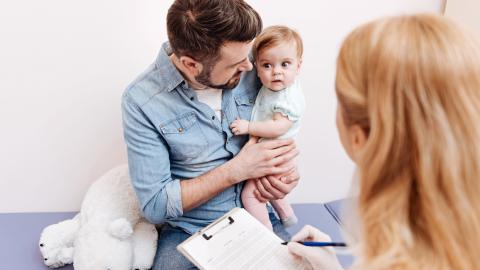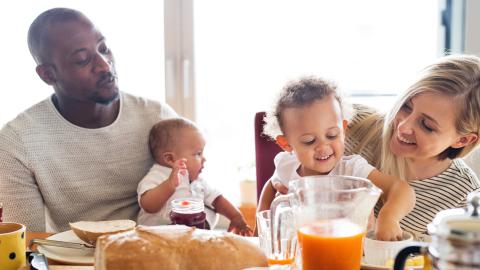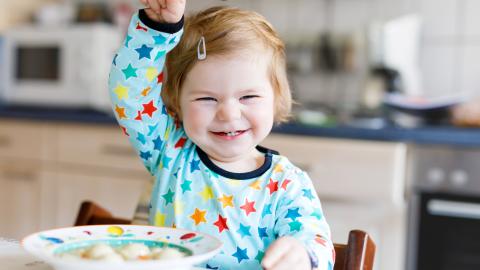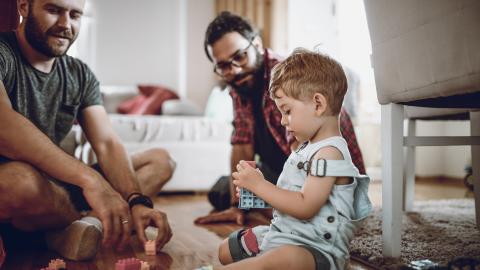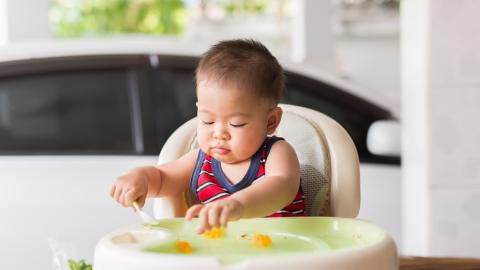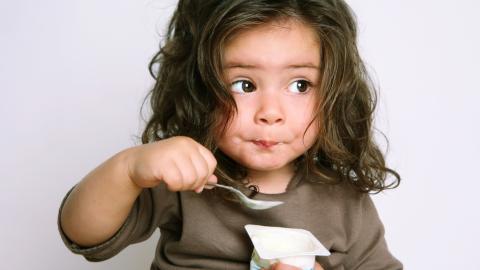Resource
Growth and development, infants to 18 months
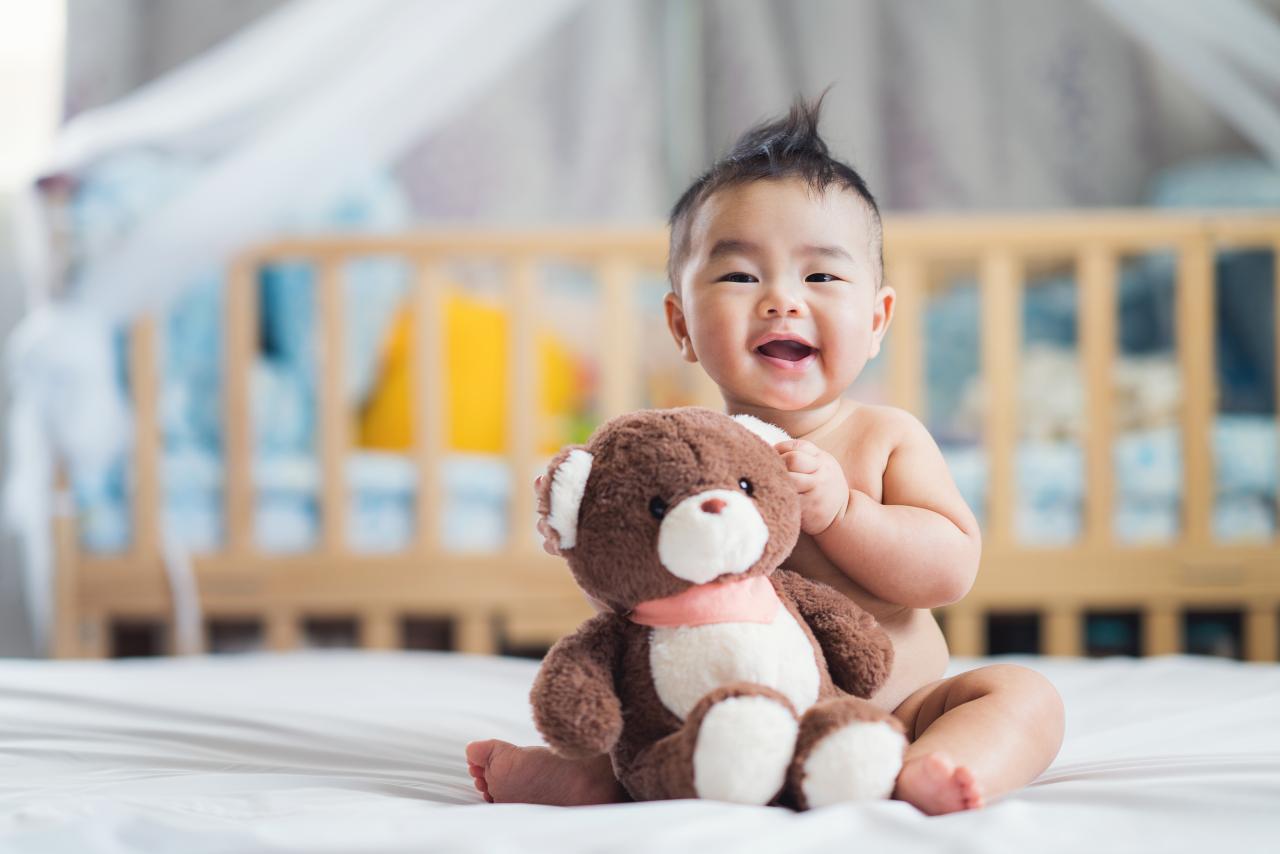
As your child grows through the stages of being infant on the way to becoming a toddler, you may have some questions about what to expect. Spend time face-to-face with your baby every day. Take time to watch and listen to your baby to learn how they ask for what they want or need. There's no such thing as spoiling a baby with too much attention – never ignore your baby when they are hurt, sick, afraid or lonely.
Bedtime and sleep
Most parents struggle with getting enough sleep after having a baby. They try to get the baby to sleep for as long as possible, so that they can sleep too. The goal for many parents is to have the baby sleep for five or more hours at a time during the nighttime. While some babies will sleep through the night at six weeks old, others wake up regularly until they are over a year old. Some babies that once slept well may start waking up again. Each baby is different and sleeping patterns can change over time.
-
Sleep and your infant - Available in English, Punjabi, Chinese Traditional
Tips to help your baby sleep
- Expose your baby to natural light, noise, and activity during the day. Put them to sleep in a room that is quiet and dark during the night.
- When you're tending to your baby at night, don't play or talk with them; keep the lights low.
- Try white noise during sleep time, like a fan or the sound of ocean waves.
- Don't respond to every sound at night. Babies make noise while they sleep. Wait to see if the baby will settle back down before responding.
- Have a calming bedtime routine that you both enjoy.
Create a safe sleeping environment
Learn how to create a safe sleeping environment for your baby. It will help them to sleep better and reduce the risk of Sudden Infant Death Syndrome (SIDS).
- Safe sleeping - Healthy Families BC
- Sleep related infant death - HealthLink B.C.
- Safe sleep for your baby - Government of Canada video
- Safe sleep for your baby pamphlet - Government of Canada
Tips to help your baby sleep as safely as possible
- Always place your baby on their back to sleep. If they roll over on their own, that's okay.
- Use an approved crib or bassinet with a firm sleep surface. Don't use any pillows or bumper pads.
- Share a room with the baby, if possible. (But don't share your bed.)
- Never expose your baby to second-hand smoke.
- Breastfeed your baby.
- Keep baby warm, but not hot. A light blanket is usually enough.
Dental care for infants to 18 months
It's important to start taking care of your baby's dental health before they get teeth. When your baby is a few days old, you can start cleaning their mouth and gums with a damp cloth twice each day. Good habits now will prevent tooth decay later in life. Tooth decay can lead to pain, infection and the need for serious surgery. For concerns about your child's dental health – contact your local Public Health dental program.
By their first birthday, your child should have already seen a dentist. If cost is something you're concerned about, you may be eligible for basic dental care benefits through the B.C. Healthy Kids Program.
- The First Dental Visit - Available in English, Tagalog, Farsi, Korean, Arabic, Punjabi, Spanish, Vietnamese, Chinese Traditional
- Children's Teeth are Important! - VCH, available in English, Tagalog, Farsi, Korean, Arabic, Punjabi, Spanish, Vietnamese and Chinese Traditional
- Dental care for your infant and toddler - HealthLink BC, also available in: Chinese, Farsi, French, Korean, Punjabi, Spanish, Vietnamese
Keeping your baby's teeth healthy
As soon as you spot your baby's first tooth, it's time to start brushing! As your baby gets older and gets more teeth, make sure you have a good view of all the teeth as you're brushing and that you are reaching all sides on each tooth. Try the knee-to-knee technique shown in this video to make brushing easier.
- Brush the tooth/teeth two times per day.
- Use a small, soft toothbrush.
- Use a rice-grain-sized amount of fluoride toothpaste.
- After 12 months of age, give all drinks from a cup (not bottle); only give water to drink between meals and snacks. Use this resource to help with the transition from a bottle to a cup: Hello Cup. Bye Bye Baby Bottle.
- Avoid sugar as much as possible and limit eating to set snack or meal times. Limit the amount of sugar you give in food in drink, especially sticky sweets.
Teething
Your baby will first start getting teeth when they are 6 to 10 months old. One by one, the rest of the teeth will continue to come. By the time they are three years old, most children have all 20 of their baby teeth.
Teething can be a difficult time for you and your baby. As the teeth come through the gums, it can be uncomfortable, making your baby fuss and cry. There are things you can do to make teething easier.
- Rub the gums with a cold, damp washcloth
- Let baby chew on a clean, cool teething ring or teething toy
- Avoid giving your baby teething biscuits or cookies (they can cause decay)
If your baby has a fever or diarrhea while teething, contact your health-care provider or call HealthLink BC at 8-1-1.
When will my child get teeth?
Most children begin teething at 6 months. Your child should have all of their first set of teeth—or "baby" teeth—by 3 years old. The bottom front teeth usually appear first, followed by the top front teeth. In total, 20 teeth should appear—10 in the top jaw and 10 in the bottom jaw. This is a general guideline, every baby has their own schedule for teeth development.
Growth
During the first months of your baby's life you will notice how quickly they grow and change. You may wonder if your baby is developing at the same rate as others the same age, or you may have concerns about something you notice.
It is normal to have questions and concerns. The best thing to do is talk to a health care provider or find more resources to help you understand your baby's growth.
Mental health
Understanding your baby's moods and emotions will help you know how to give them the best care possible.
If you have concerns about your baby's state of mind please look for more information Kelty Mental Health Resource Centre.
Play
Playtime is important for babies to develop and grow. By exploring the world through play, babies learn about the world and gain new skills. You can help with this very important job. If you're not sure how to play with a baby, that's okay! There are many games that you can learn to play together. Remember: Any toy or object that can fit entirely into your baby's mouth is dangerous. Keep all small items far away from your baby's hands.
- Your child and play from birth to 3 years - HealthLink B.C.
- Babies' social and emotional development from 0-6 months - Healthy Families B.C.
- Babies' social and emotional development from 6-9 months - Healthy Families B.C.
- Toddlers' social and emotional development from 12-18 months - Healthy Families B.C.
Screen time
It can be tempting to use screen time to keep your baby happy. And, while sitting your baby in front of the TV, computer or tablet can keep them occupied and free up time for you, it's not recommended for children under the age of two. Instead, involve your child in what you're doing. If they can sit up, put them into a highchair in the kitchen and have them watch you make dinner instead of watching TV, for example.
-
Screen time and the young child - Available in English, Korean, Farsi, Vietnamese, Punjabi, Chinese Traditional, Spanish
Injury prevention and safety
Children learn new skills quickly. That's why it's important to be two steps ahead when thinking about safety. As your child is learning to crawl, you should be preparing your home to be safe for them as though they can already walk.
Get down to your child's level and look for hazards. For example, try pushing against furniture to see if it's stable enough to support your child's weight as they pull themselves up to standing. Some of the most common causes of injury you should look out for are:
- Falls – Example: Is there any furniture that your child could climb on then fall off of?
- Burns/scalds – Example: Is there anything that your child could climb on in the kitchen that would let them reach the stove?
- Poison – Example: Are all household cleaners stored and well out of reach?
If an accident does happen, it's good to be prepared ahead of time. Learn basic first aid for common injuries on the HealthLink B.C. website.
Speech and language
Infants may not talk, but they are learning language from the time they are born. They listen to you when you talk and try to communicate with you through copying your facial expressions or waving their arms and legs. It's important to talk to your baby as much as possible. In the beginning, just talk or sing to your baby about anything as you do everyday tasks.
- Talking to your baby is important - Available in English, Punjabi, Spanish, Vietnamese, Chinese Traditional
- Keep your first language - It's good for children to grow up learning more than one language, so if you speak another language, share it with your baby. Available in English, Chinese Traditional, Farsi, French, Korean, Punjabi, Spanish, Vietnamese
- Baby talk - Understanding your baby's communication. Available in English, Chinese Traditional, Punjabi, Spanish, Vietnamese,
Learning first words
As your baby learns to make sounds of their own and starts to use gestures such as pointing or shaking their head for "no", you can help them learn their first words.
- Use short, simple sentences. For example, "Juice all done"
- Use words that your child can copy. For example, "all done", "more", "no"
- Use simple common action words. For example, "wash", "go", "eat"
- Repeat first words often. For example, "you want milk?" "here's milk", "more milk?"
- Wait for your child to ask for what they want.
- Talk about things that your child shows an interest in.
- Smile and have fun when talking to your child.
Vision and language
Healthy vision is an important part of how your baby learns to communicate. If you suspect that there are problems with your baby's eyes, contact your health care provider. Learn more about your baby's vision from birth to 6 months (available in multiple languages).
When to get help
In order to see how your child’s language development compares to his or her peers, you can use thisDevelopmental chart for hearing and speech. However, each child develops at their own pace and has different strengths. It may be perfectly normal for your child to pick up language more slowly.
In addition to beginning to use language, your child should also be making eye contact, pointing to things that interest them and trying to share activities with you by the time they are 18 months old.
If you have concerns, talk to your health care provider or contact a speech-language pathologist at VCH. If services are needed, it’s important to start them as early as possible.
Hearing
Your baby likely already had a first hearing test in the hospital. You can keep monitoring your baby's hearing at home. Your baby should be doing at least a few of the following:
- Startle and/or cry at loud sounds
- Smile when there are friendly voices
- Look toward sounds
- Recognize his or her parents' voices
- Notice toys that make sounds
If your baby isn't doing these things, that doesn't necessarily mean that something is wrong, but you should speak to your health care provider about your concerns. If there are problems, it's important that they're caught and treated early.
VCH audiology services offers comprehensive hearing services for children 0 to 19.
Early hearing program
1 in every 300 babies born in BC has hearing loss. If it's caught early, much can be done and problems with developing language skills can be avoided. That's why the BC Early Hearing Program is working to screen all babies born in B.C. Hospitals. Most babies in BC have their hearing screened before they go home from the hospital. For babies who were not screened in the hospital, hearing screening is offered at your local audiology (hearing) clinic or community screening clinic.
The test is not painful or uncomfortable for the baby, and you will get results right away. In most babies, it is clear that their hearing is fine and you can get peace of mind. Many babies, however, will need follow-up testing. This does not necessarily mean that there is anything wrong. In most cases it simply means that a clear reading wasn't possible. There may have been too much background noise, for example. However, it's important to go to all of your follow-up appointments so that if there is any hearing loss, your baby can get help right away.
Vision
Your baby's eyes are growing like the rest of their body. If you have concerns about your child's vision, talk to your health care provider.
Toileting
Most children tend to be ready for toilet training (going to the potty) around their second birthday. Some are ready earlier and others later. Your toddler will let you know that they're ready when they do the following things:
- Keep their diaper dry for a few hours at a time.
- Show an interest in the toilet or potty and what it is used for.
- Can pull down their pants and sit on a potty by themselves.
- Can let you know through words or actions that they need to use the potty.
As your child learns to use the potty, use these tips and be patient. Every child has accidents and it's normal for them to sometimes make a mess as they're learning. By giving them praise for doing well, instead of punishment for mistakes, you're helping them learn faster.
- Toilet training - Available in English, Spanish, Punjabi, Vietnamese, Farsi, Chinese Traditional
- Learning to use the toilet - Healthy Families BC
Parenting
A baby will keep you busy! Babies need to be fed, have diapers changed, and be kept safe and healthy. But the most important thing you will do in the first 18 months is build a healthy relationship with your baby.
There is no such thing as spending too much time with your baby. You won’t spoil them. Never ignore your baby when they are hurt, sick, afraid or lonely. Every minute that they are shown attention and love will only help them thrive. Always use gentle hands and kind voice. Gaining your baby’s trust by being a steady source of comfort is the key to a healthy relationship
Self-care while parenting a baby
Forgive yourself and your partner for mistakes – nobody is perfect. Take care of yourself. Parents who are feeling lonely, afraid, sad or worried will find it hard to respond to their baby’s needs.
If you find that you’re struggling with caring for your baby, it doesn’t mean you’re a bad parent. Sometimes building that relationship just takes time. It may also be a sign that you need more support. Talk to your public health nurse or family doctor.



